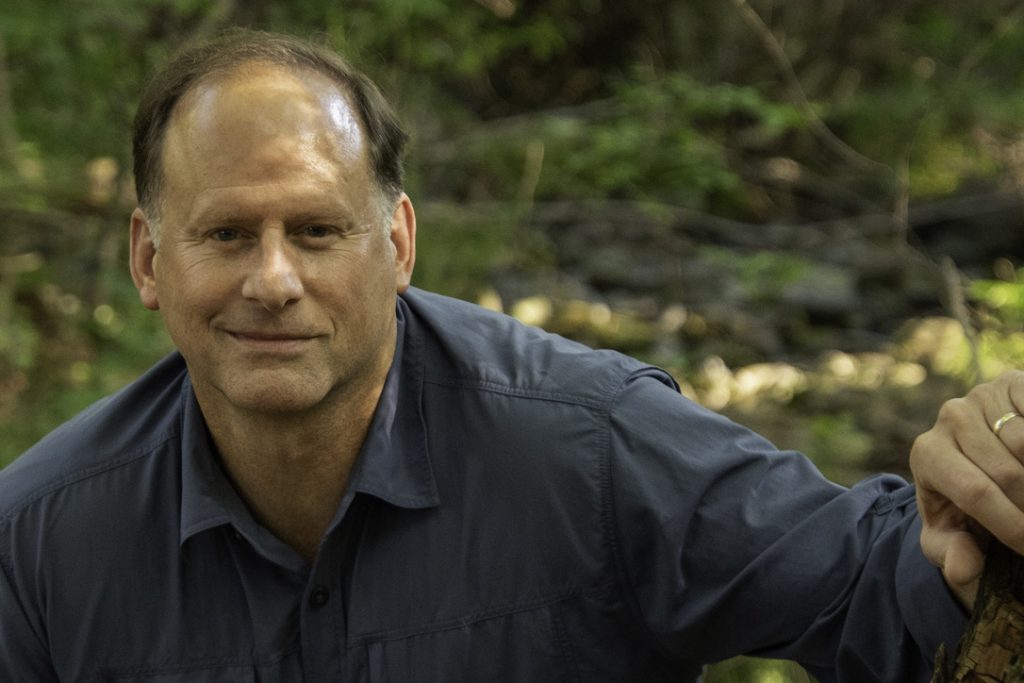Todd Fleming Davis’ newest poetry collection, Coffin Honey, takes on issues of climate and collapse and climate catastrophe.
“It’s a book of eco-grief, told in part through the eyes of a black bear,” said Davis, a poet, educator and the Week Seven poet-in-residence at the Chautauqua Writers’ Center. “There’s also a boy at the center of the book, as well, and he’s the victim of sexual assault by his uncle. It’s a very dark book.”
At 3:30 p.m. Sunday, Aug. 7 in the Hall of Philosophy, Davis will give a reading from Coffin Honey. Davis, the author of seven poetry collections, will also teach a weeklong Writers’ Center workshop, “Poetry of Transformation: Metaphor and Mythmaking in Contemporary Poetry.” Aisha Sabatini Sloan, essayist, Pushcart nominee and author of the book-length essay Borealis — and this year’s Janus Prize judge —was originally scheduled as the prose writer-in-residence; she will not be in attendance during Week Seven.

“(In my workshop) we’ll certainly be reading poems by other writers that have written poems of transformation,” he said. “When I think about transformation, it’s magical change, or it’s renovating myths that already exist, or it’s everyday small things that transform our day. It’s those revelatory once-in-a-lifetime moments, too.”
There are major events in people’s lives, Davis said, like losing or gaining a job, the birth of a child, or the death of somebody we love, that are more obvious examples of transformation.
“Those are certainly something we can write about,” he said. “But then there’s also the idea of: How do we use stories that already exist, like myths and sacred stories, to create associations of those moments in our own lives?”
What will be even more crucial, according to Davis, are the conversations his students will have about “what transformation is.”
“I find it helpful for people in workshops to tell stories about whatever the topic is. Stories from their own lives, or from short stories that they’ve read, or people in their lives — those transformative moments,” he said. “And then, it’s essential to start thinking about the fact that poetry actually can be like nonfiction.”
Davis said that while some poets use only their own life experiences as material for their work, he operates differently.
“I’m a poet who tends to say, ‘Let’s start with the springboard of lived events,’ whether they’re our own or somebody else’s. Then, how do we allow imagination and association to allow the poem to really take control of these events?” he said. “It’s almost chemical, the changes that take place when you give yourself that freedom of imagination.”




